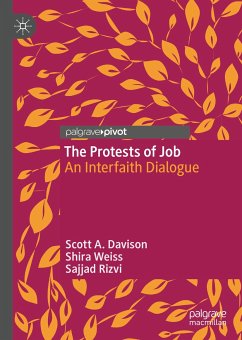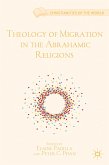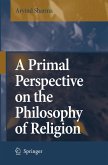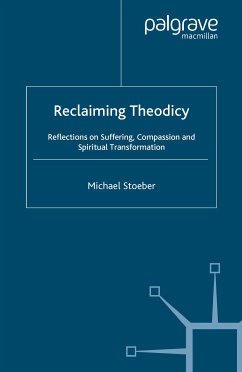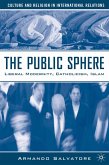"This book is a charming exchange of ideas between three superb scholars from the three main Abrahamic faiths, and a showcase of a very particular form of interfaith dialogue-or better still, interfaith encounter: a form of interfaith dialogue that doesn't settle for trite comparison, nor fears respectful disagreement. It is the meeting of three minds, three traditions, three scholars, and three people, in an atmosphere of mutual respect."
-Samuel Lebens, University of Haifa, Israel
This book explores the protests of Job from the perspectives of Jewish, Christian, and Islamic religious and philosophical traditions. Shira Weiss examines how challenges to divine justice are understood from a Jewish theological perspective, including the pro-protest and anti-protest traditions within rabbinic literature, in an effort to explicate the ambiguous biblical text and Judaism's attitude towards the suffering of the righteous. Scott Davison surveys Christianinterpretations of the book of Job and the nature of suffering in general before turning to a comparison of the lamentations of Jesus and Job, with special attention to the question of whether complaints against God can be expressions of faith. Sajjad Rizvi presents the systematic ambiguity of being present in monistic approaches to reality as one response to evil and suffering in Islam, along with approaches that attempt a resolution through the essential erotic nature of the cosmos, and explores the suggestion that Job is the hero of a metaphysical revolt that is the true sign of a friend of God. Each author also provides a response essay to the essays of the other two authors, creating an interfaith dialogue around the problem of evil and the idea of protest against the divine.
Scott A. Davison is Professor of Philosophy at Morehead State University, USA.
Shira Weiss teaches Jewish Thought and is Asst. Director of the Sacks-Herenstein Center for Values and Leadership at Yeshiva University, USA.
Sajjad Rizvi is Professor of Islamic Intellectual History and Director of the Institute of Arab and Islamic Studies at the University of Exeter, UK.
Dieser Download kann aus rechtlichen Gründen nur mit Rechnungsadresse in A, B, BG, CY, CZ, D, DK, EW, E, FIN, F, GR, HR, H, IRL, I, LT, L, LR, M, NL, PL, P, R, S, SLO, SK ausgeliefert werden.
Es gelten unsere Allgemeinen Geschäftsbedingungen: www.buecher.de/agb
Impressum
www.buecher.de ist ein Internetauftritt der buecher.de internetstores GmbH
Geschäftsführung: Monica Sawhney | Roland Kölbl | Günter Hilger
Sitz der Gesellschaft: Batheyer Straße 115 - 117, 58099 Hagen
Postanschrift: Bürgermeister-Wegele-Str. 12, 86167 Augsburg
Amtsgericht Hagen HRB 13257
Steuernummer: 321/5800/1497
USt-IdNr: DE450055826
Bitte wählen Sie Ihr Anliegen aus.
Rechnungen
Retourenschein anfordern
Bestellstatus
Storno

